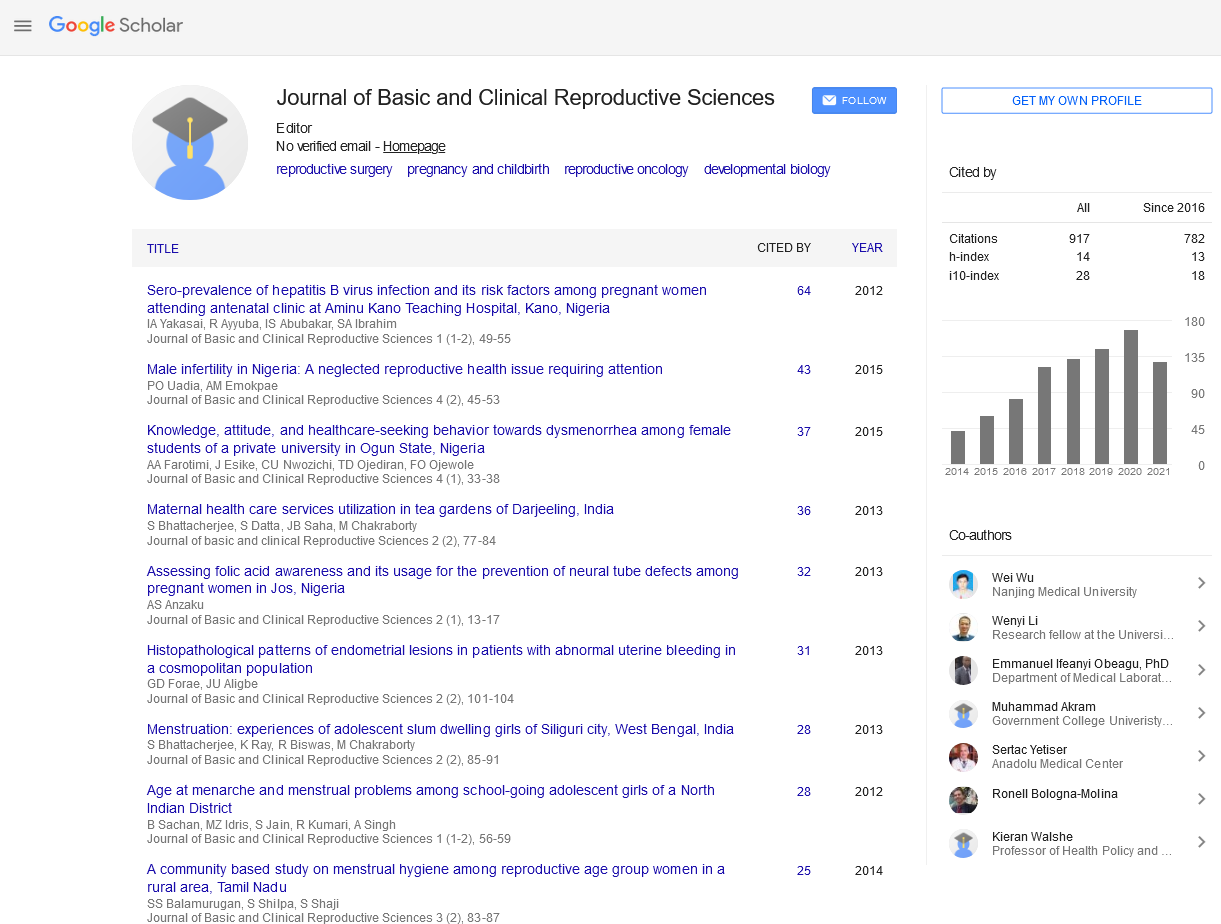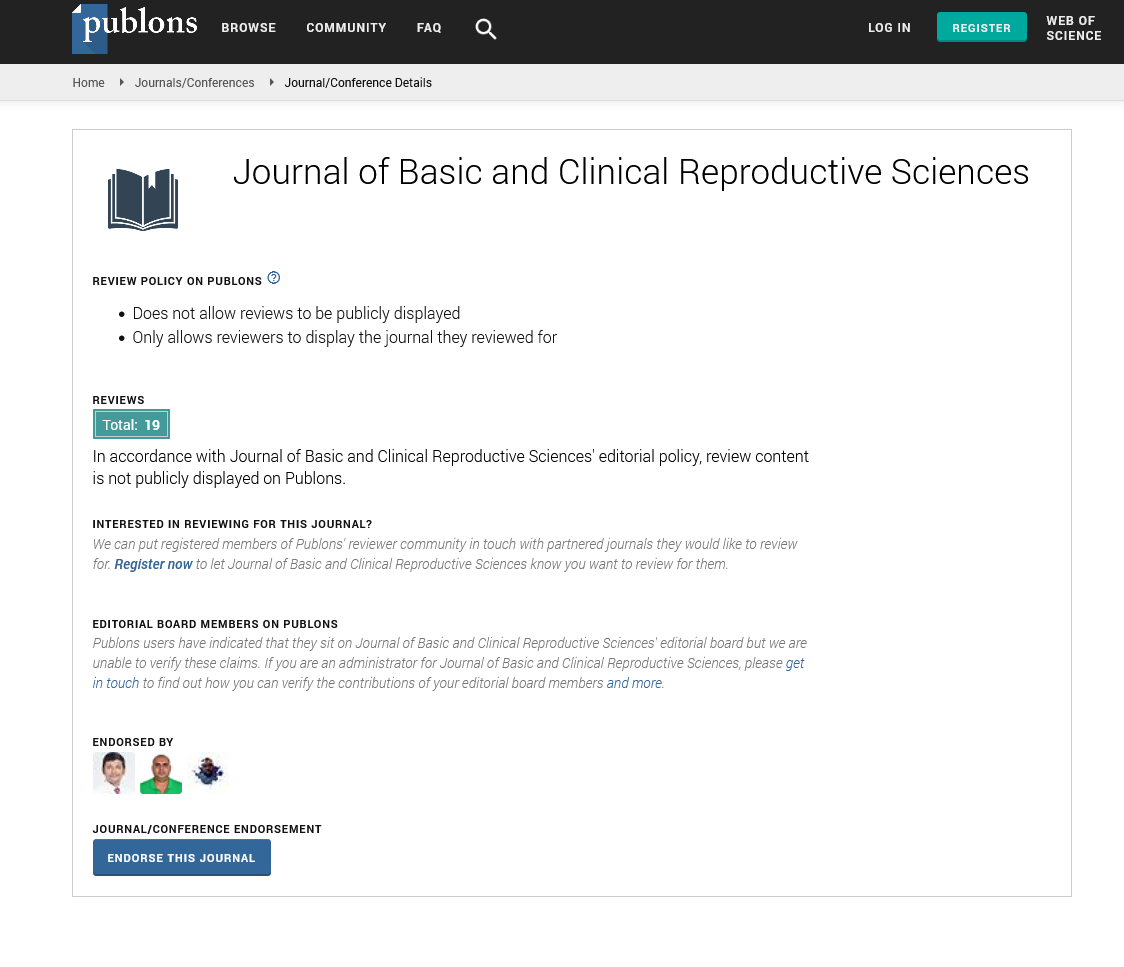Perspective - Journal of Basic and Clinical Reproductive Sciences (2024) Volume 13, Issue 3
Legal and Ethical Considerations in the use of Surrogacy for Gender Selection and Genetic Engineering
Received: 20-May-2024, Manuscript No. JBCRS-24-143326; Editor assigned: 22-May-2024, Pre QC No. JBCRS-24-143326 (PQ); Reviewed: 05-Jun-2024 QC No. JBCRS-24-143326; Revised: 14-Jun-2024, Manuscript No. JBCRS-24-143326 (R); Published: 21-Jun-2024
This open-access article is distributed under the terms of the Creative Commons Attribution Non-Commercial License (CC BY-NC) (http://creativecommons.org/licenses/by-nc/4.0/), which permits reuse, distribution and reproduction of the article, provided that the original work is properly cited and the reuse is restricted to noncommercial purposes. For commercial reuse, contact reprints@pulsus.com
Description
Surrogacy is a reproductive arrangement in which a woman carries and delivers a child for another individual or couple and is a complex and evolving area of reproductive medicine. While it provides significant opportunities for those unable to conceive or carry a pregnancy, surrogacy also raises profound legal and ethical issues. Understanding these issues is vital for ensuring that surrogacy practices are fair, transparent, and respectful of all parties involved. One of the most significant legal challenges in surrogacy is the variation in regulations across different jurisdictions. In countries like the United States, surrogacy laws are determined at the state level, creating a patchwork of legal frameworks. States such as California have established clear regulations supporting surrogacy arrangements, including enforceable contracts and established parental rights. Other states, like New York, had restrictive laws that often discouraged or prohibited surrogacy until recent legal reforms. Internationally, the legal landscape can be even more diverse. Countries like France and Germany have strict bans on surrogacy, while others, such as the United Kingdom, allow only altruistic surrogacy, where compensation is limited to medical expenses and lost wages. This variability can complicate cross-border surrogacy arrangements, as intended parents and surrogates must navigate different legal systems and requirements. Determining legal parentage is an important issue in surrogacy. In many jurisdictions, the surrogate mother is initially considered the legal parent, which can create complications for intended parents. Legal agreements and court orders are often required to establish the intended parents’ rights. This process can be time-consuming and costly, with varying degrees of success depending on local laws. In jurisdictions where surrogacy is not well-regulated, disputes over custody or parental rights can arise, particularly if the surrogate has a biological connection to the child. Clear and enforceable legal agreements are important to prevent such conflicts and ensure that all parties understand their rights and responsibilities. The distinction between commercial and altruistic surrogacy adds another layer of legal complexity. Commercial surrogacy, where the surrogate receives financial compensation beyond medical expenses, is legal in some places but banned or heavily restricted in others. Altruistic surrogacy, which involves reimbursement only for medical costs, is more widely accepted but still subject to legal scrutiny. Regulating compensation in commercial surrogacy is vital to prevent exploitation and ensure fair practices. The potential for financial incentives to influence decisions can lead to ethical concerns about the surrogate’s autonomy and well-being.
Ethical issues in surrogacy
Ethical concerns about exploitation and coercion are prominent in surrogacy discussions. There is a risk that economically disadvantaged women might be coerced into becoming surrogates due to financial pressures. Ensuring that surrogacy arrangements are truly voluntary and free from undue influence is essential to address these concerns. The commercialization of reproduction raises ethical questions about the commodification of human life. Critics argue that treating surrogacy as a commercial transaction reduces the child and the surrogate to commodities, undermining the inherent dignity of the reproductive process. Balancing the financial aspects of surrogacy with respect for the human elements involved is vital for maintaining ethical integrity.
Conclusion
Surrogacy presents a range of legal and ethical challenges that require careful consideration and regulation. The welfare and rights of the child born through surrogacy are paramount. Ethical surrogacy arrangements must prioritize the child’s best interests, ensuring a stable and supportive environment. Additionally, the child’s identity and understanding of their origins should be handled with sensitivity to avoid psychological issues related to their conception and birth. As surrogacy practices continue to evolve, it is vital for lawmakers, ethicists, and practitioners to address these issues comprehensively. The health and well-being of the surrogate mother are also important ethical considerations. Surrogates should receive comprehensive medical care, psychological support, and protection from exploitation. Ensuring that surrogacy arrangements respect the surrogate’s health and autonomy is essential for ethical practice. Ensuring that surrogacy arrangements are fair, transparent, and respectful of all parties involved-intended parents, surrogates, and the child-will help foster ethical and legally sound practices in this complex field.


